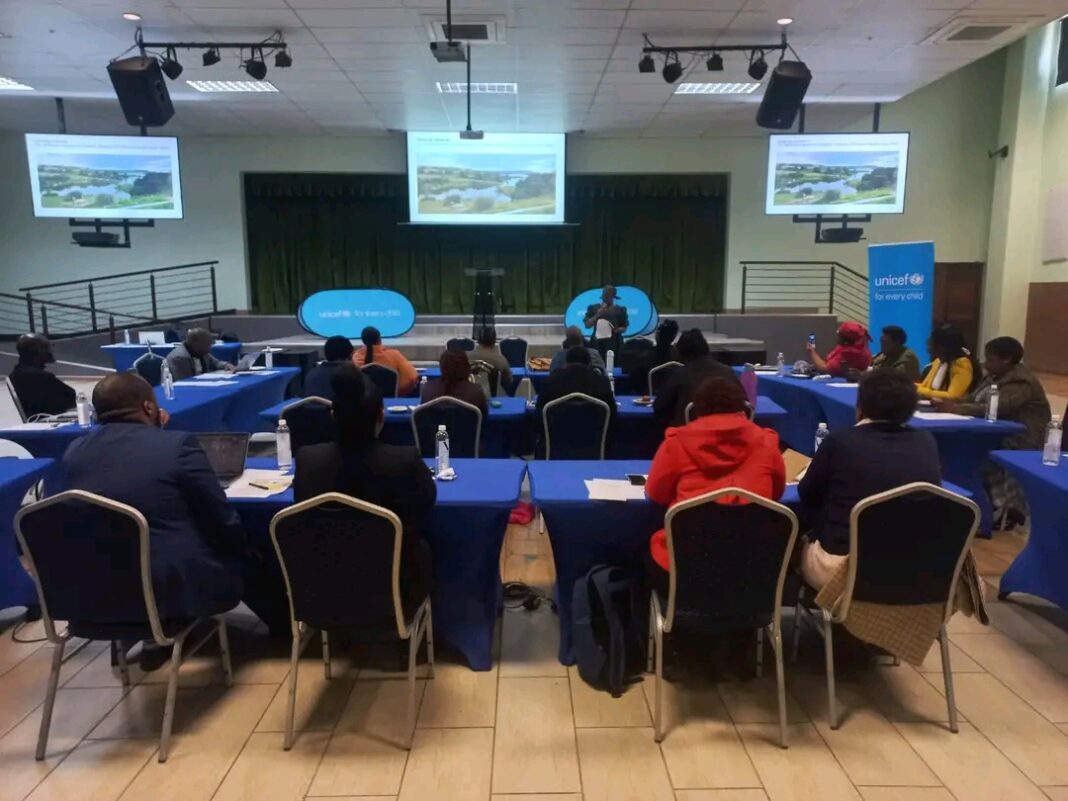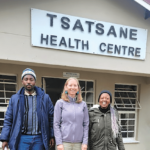… Project Unveils Alarming Statistics
Ntsoaki Motaung
Startling revelations from the Early Identification of Development Delays Linked With Nutrition Screening for Children project have laid bare a pressing issue for Lesotho – the prevalence of high levels of stunting among children aged 0 to 6 years old.
The project, conducted in collaboration with several organisations and clinics, has underscored the urgency of addressing this critical concern.
Dr Nukhba Zia, Assistant Scientist at Johns Hopkins Bloomberg School of Public Health (USA), delivered the concerning news on Wednesday.
The project, initially piloted in the districts of Mokhotlong and Maseru, meticulously evaluated five clinics and preschools in each respective district.
Dr. Zia emphasised: “The project’s survey unveiled a stark reality – the rate of stunting among children aged 0 to 6 years old stands at a troubling 29 percent.â€
Furthermore, the survey exposed that the risk of developmental delays among children aged 0 to 24 months old is a staggering 23 percent.
While Lesotho grapples with these alarming statistics, the global sustainable development goals agenda sets ambitious targets of reducing under-five stunting by 40 percent and acute malnutrition or wasting to five percent.
These revelations were unveiled during the announcement of the results of Lesotho’s Early Identification Project, a commendable effort funded by UNICEF Lesotho.
The execution of the project was a collaborative endeavor involving the Lesotho National Federation of Organisations of the Disabled (LNFOD), in partnership with SPOON and the Johns Hopkins International Injury Research Unit at the Johns Hopkins Bloomberg School of Public Health.
The project’s methodology involved utilising a digital app named Count Me In.
This app facilitated the screening of children for malnutrition and developmental delays at the selected health centers and preschools. Count Me In guided the staff through a series of questions and offered tailored recommendations. These recommendations aided in family counseling and referrals for further evaluation when necessary.
In the span of a three-month pilot period, 470 children were screened at preschools and clinics.
The data painted a concerning picture, with 1 in 3 children identified as stunted, and 1 in 4 children at risk for developmental delays.
Developmental delays and malnutrition are twin public health challenges in Lesotho. According to LNFOD, approximately 8.2 percent of children aged 2 to 4 experience functional difficulties, and a third of children under 5 in Lesotho face stunting or poor growth.
Half of the children under 5 grapple with iron-deficiency anemia.
Nkhasi Sefuthi, LNFOD’s Executive Director, stressed the importance of early identification of malnutrition and developmental delays. Sefuthi underscored that this project contributes to building inclusive systems where all children, irrespective of their impairments, have equal opportunities.
Dr Zeina Makhoul, SPOON’s Nutrition Scientist, highlighted the significance of early identification.
“This project equips professionals and families with the knowledge and tools to make an impact when children are at their most crucial phases of growth and development,†Makhoul said.
Dr ‘Makhoase Ranyali, Director of Primary Health Care, lauded the project’s creativity and echoed the call for its expansion. Ranyali emphasised the necessity for comprehensive implementation throughout the country and further training for all stakeholders, including village health workers and community leaders.
Summary
- Startling revelations from the Early Identification of Development Delays Linked With Nutrition Screening for Children project have laid bare a pressing issue for Lesotho – the prevalence of high levels of stunting among children aged 0 to 6 years old.
- The execution of the project was a collaborative endeavor involving the Lesotho National Federation of Organisations of the Disabled (LNFOD), in partnership with SPOON and the Johns Hopkins International Injury Research Unit at the Johns Hopkins Bloomberg School of Public Health.
- The data painted a concerning picture, with 1 in 3 children identified as stunted, and 1 in 4 children at risk for developmental delays.

Your Trusted Source for News and Insights in Lesotho!
At Newsday Media, we are passionate about delivering accurate, timely, and engaging news and multimedia content to our diverse audience. Founded with the vision of revolutionizing the media landscape in Lesotho, we have grown into a leading hybrid media company that blends traditional journalism with innovative digital platforms.










